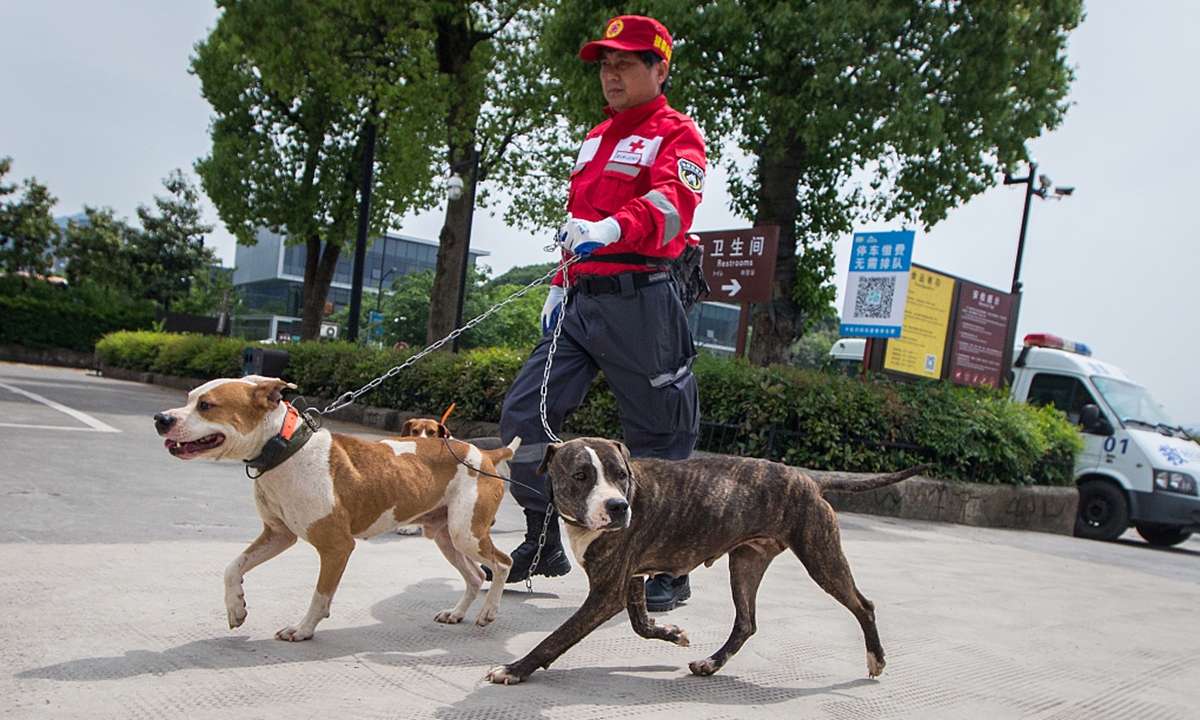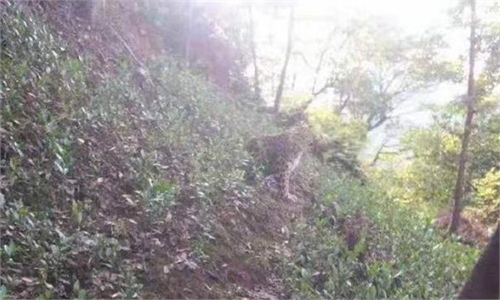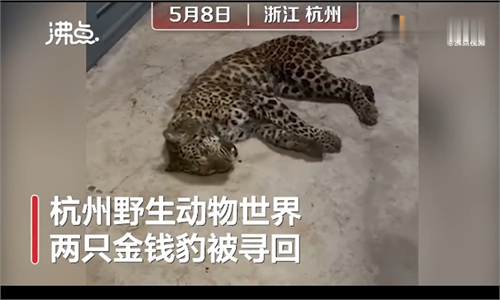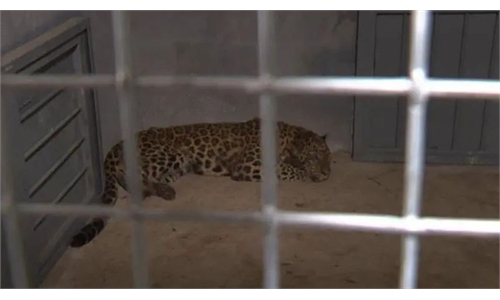Third leopard escaped from a safari park is 'possibly dead', sparking criticism over animal abuse

Search and Rescue staff look for the missing leopards in Hangzhou, East China's Zhejiang Province, on May 8, 2021. Photo: CFP
Public criticism has not receded after a safari park in East China's Hangzhou admitted it had covered up for weeks the escape of three juvenile leopards. The park is suspected of using dogs to search for the missing big cats and being involved in trafficking of wild animal products, which sparked the fury of animal lovers and protectors.
Two leopards have been found while the search for the third is still underway. But animal experts said that, considering the leopard born in captivity had been roaming freely for more than three weeks, it possibly had died of starvation or injury.
The scandal also exposed the challenges of domestic safari parks on how to make ends meet, expansion without careful planning and poor safety management.
A video showing a pack of pit bulls surrounding a leopard has been circulating on Chinese social media alongside the search for the third missing big cat, sparking public criticism against the safari park for the lack of professionalism in dealing with an emergency of this kind.
"Such ferocious dogs could kill a juvenile leopard as pit bulls are bred to fight and could be very violent," an animal protector who runs a pet content-sharing account with more than 1 million followers, told the Global Times.
Pit bulls are not allowed in cities as pets and there have been many reports of dogs of this breed biting their owners to death after living together many years, the animal protector Jiang Lan said, adding that using so many pit bulls for this search is equal to hunting and killing.
The second leopard suffered injuries in one paw after it was captured on Saturday which added fuel to public anger against the safari park.
Zhang Jinshuo, an expert from the Institute of Zoology at the Chinese Academy of Sciences (CAS), told media that the leopard is juvenile and grew up at the zoo, which means it has limited capability to live in wild.
"It is either hidden or already dead," Zhang said.
With hearts attached to the leopard still missing, the public also questioned whether the owner of the safari park has a connection with illegal research and sales of wild animal products.
The safari park has been granted a certificate for sale, purchase and use of wild land animals and derived products. A senior manager at the park, Zhang Juyan, applied for a patent for scrapping rhino horn pieces without harming the animal. Zhang Juyan is also deputy chair of a pharmaceutical company that focuses on medical research and development based on wild animal resources.
The connection had sparked speculation on whether the company is using animals at the safari park to do illegal research and business in addition to displaying them.
The Hangzhou park is one of the most famous safari parks in China and the scandal, which exposed safety regulation loopholes, also prompted reflection on the industry.
There have been some 20 cases of animal escapes since 2016, according to media reports which may not exhaustive. A zookeeper was attacked to death in October 2020 at a safari park in Shanghai for failing to isolate the animals when staff were working in the bear area.
The Hangzhou safari park also did not obey a government regulation that stipulates immediate reports of violent animal escapes.
Zhang Jinshuo from the CAS pointed out that, unlike city zoos that are under government regulation and receive government subsidies, many safari parks are private and located in suburbs while their employees are usually farmers whose lands were leased to the safari park.
These problems result in enclosures not suitable for animals, unprofessional breeders and unstable animal sources. These parks cannot breed the animals they already have, which could lead to buying or even worse, poaching, according to science writer Huashi.
Safari parks are also facing great economic pressure without government funding, which more or less motivated the Hangzhou park to conceal the leopard escape. It received an average of 20,000 visitors daily during the May Day holidays, who paid more than 200 yuan each for a ticket. In the same period in 2020, the number of visitors was 12,000 while in 2019, it was near 50,000.
Jiang noted that people need to understand that animals in cages of city zoos are not living a free and happy life, just as in more extensive enclosures and the drive-through zoos, contrary to tour operators that mislead visitors to believe those animals are happier.
"No matter what form the enclosure is, it is an abuse of animal's freedom and a threat to their health and even life," Jiang said.



